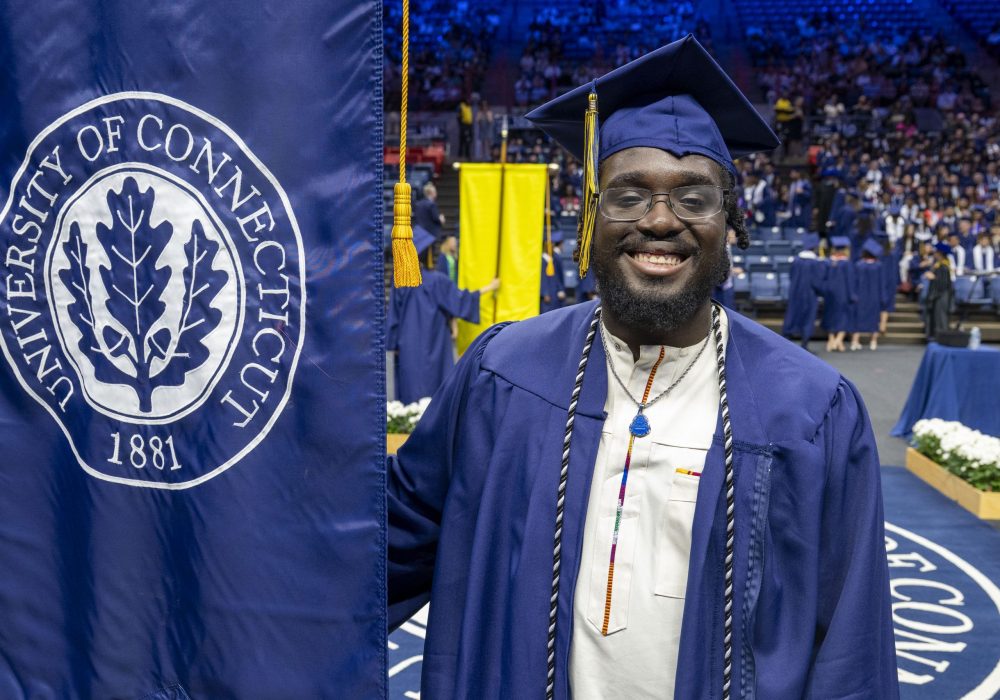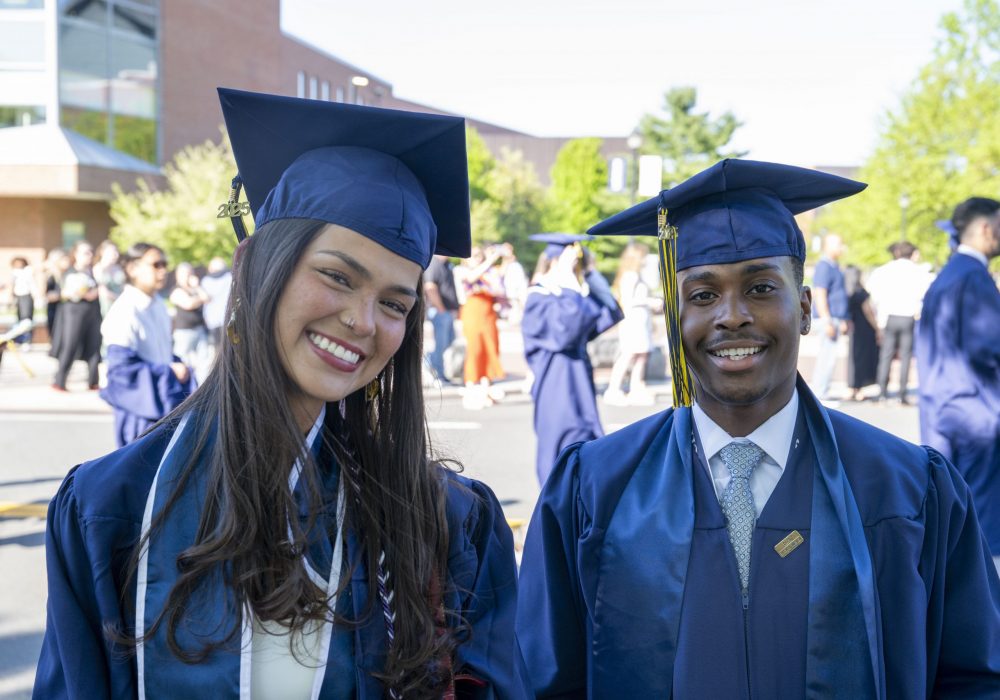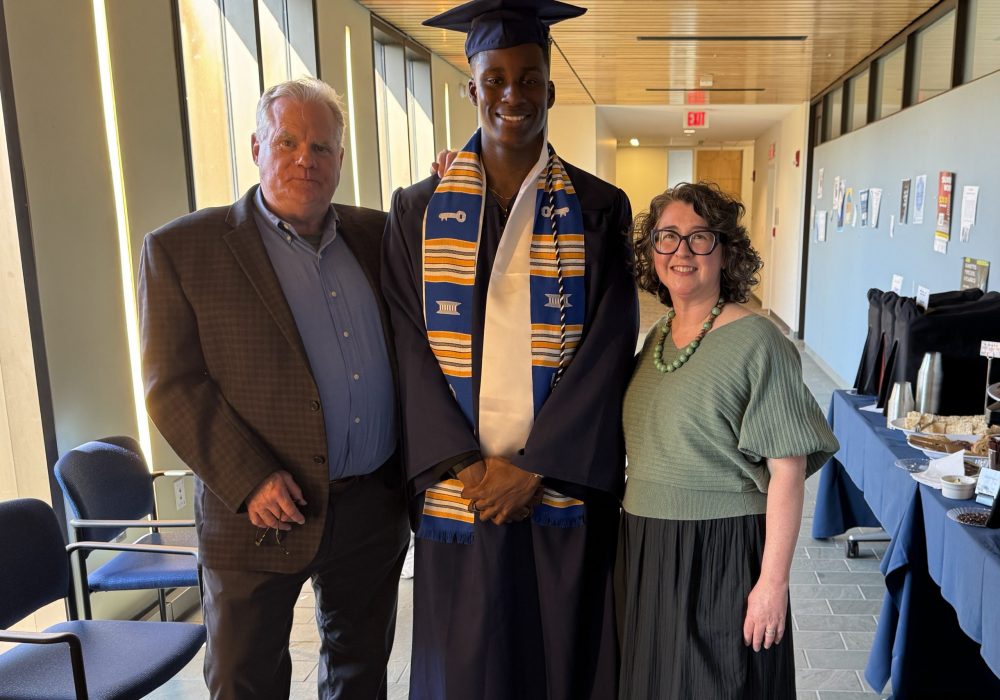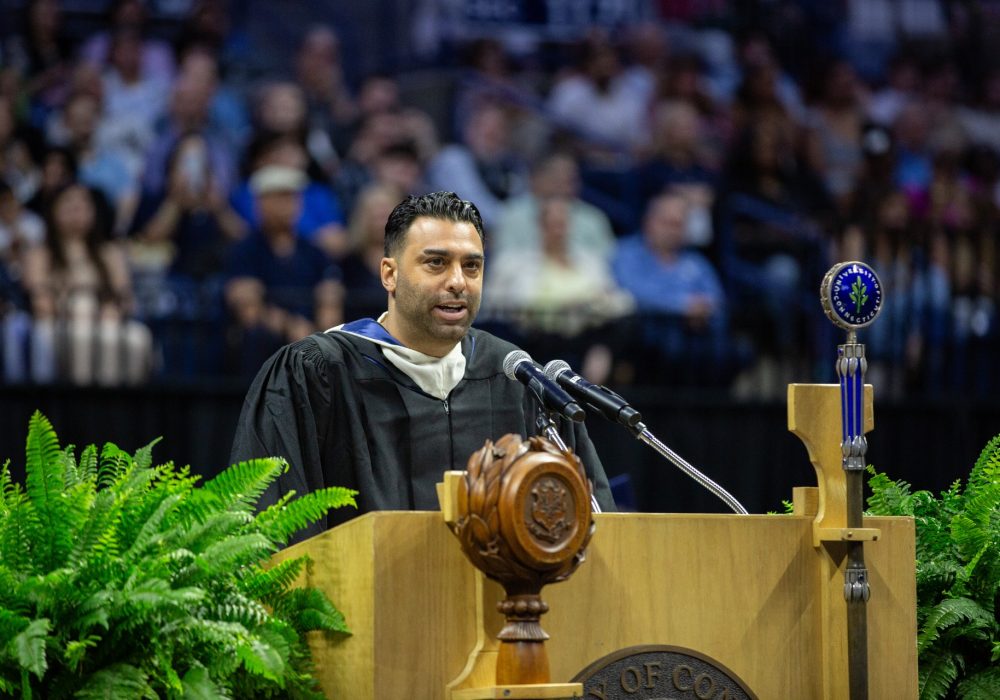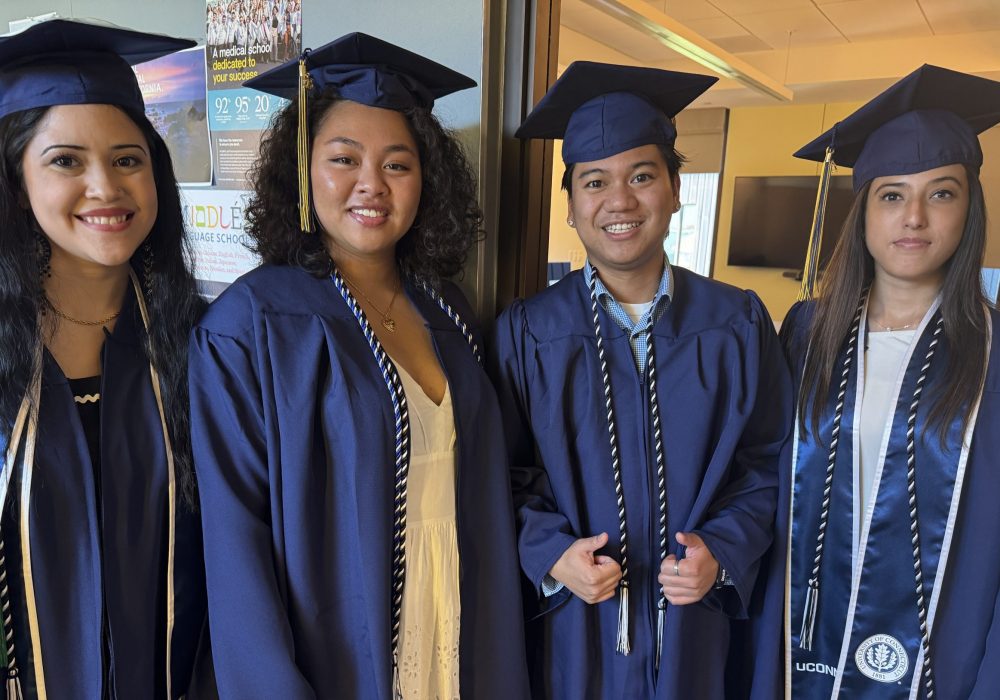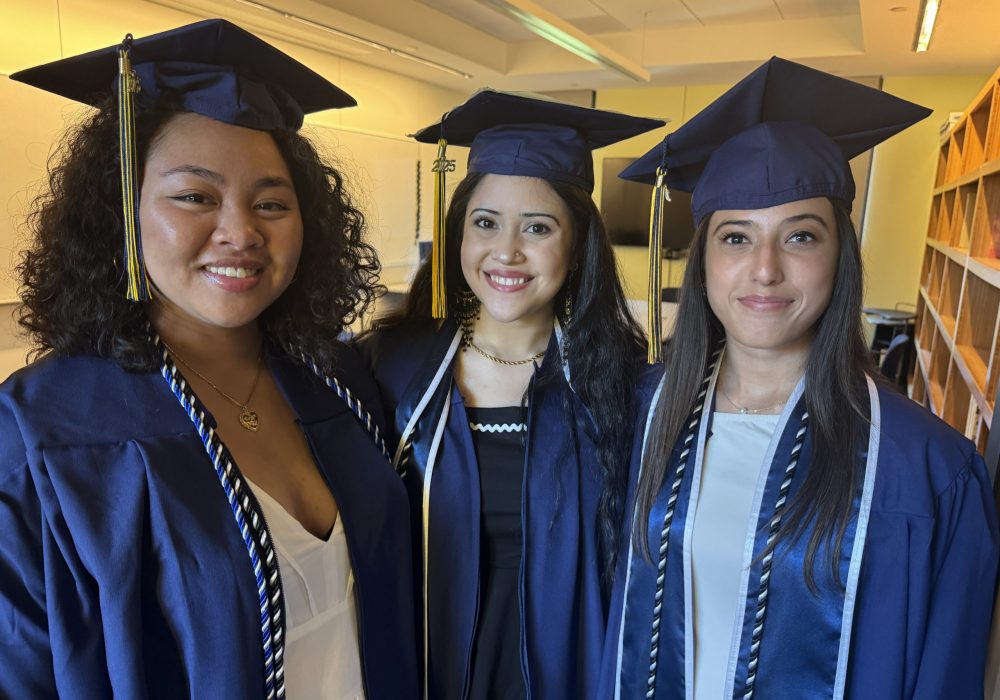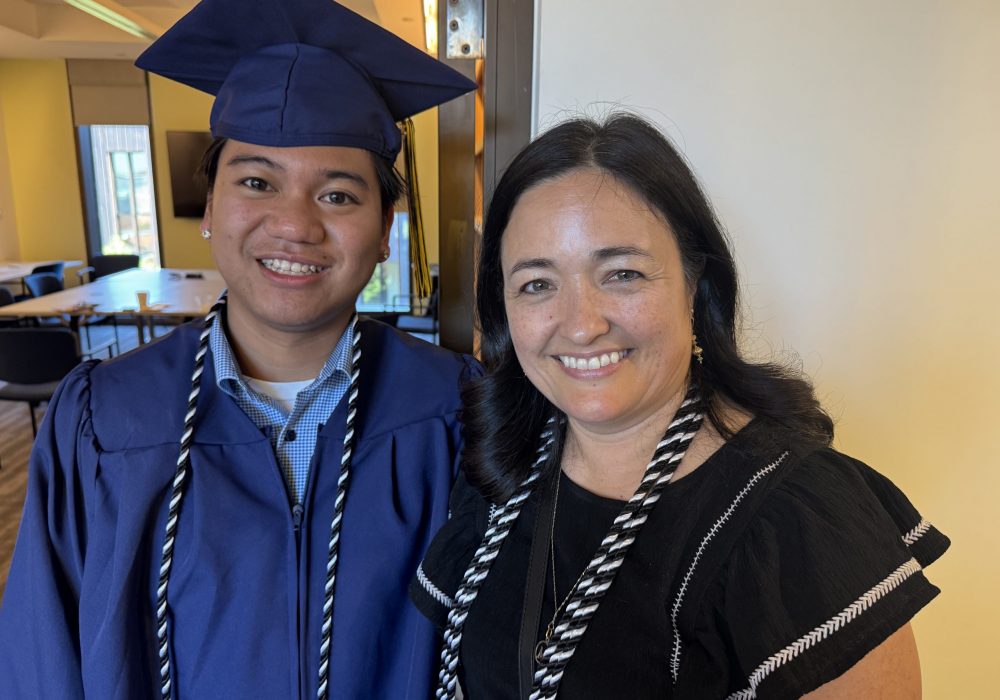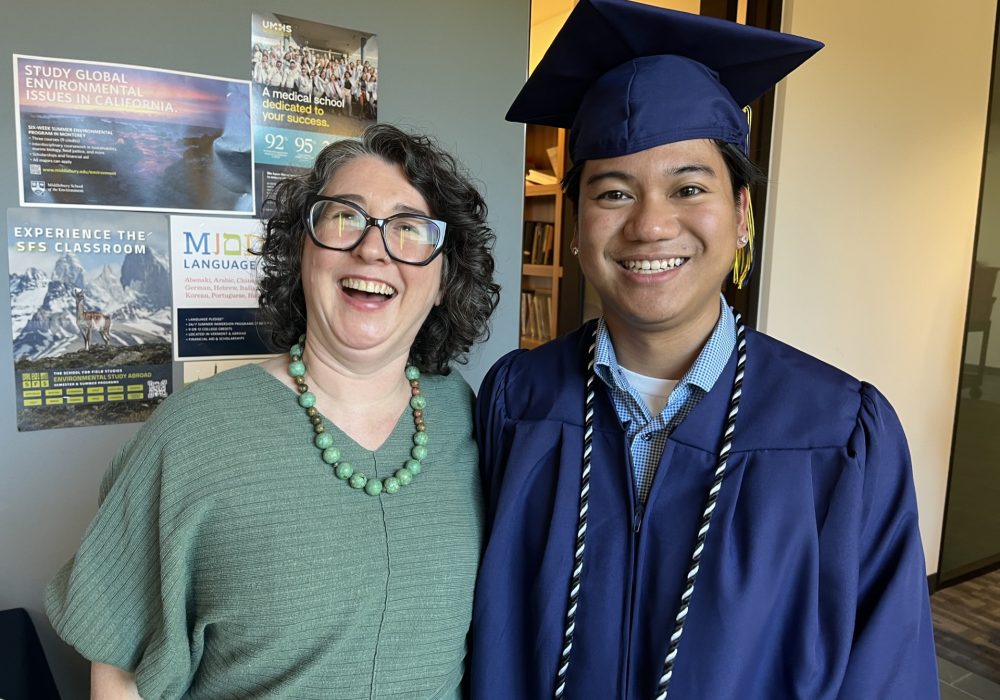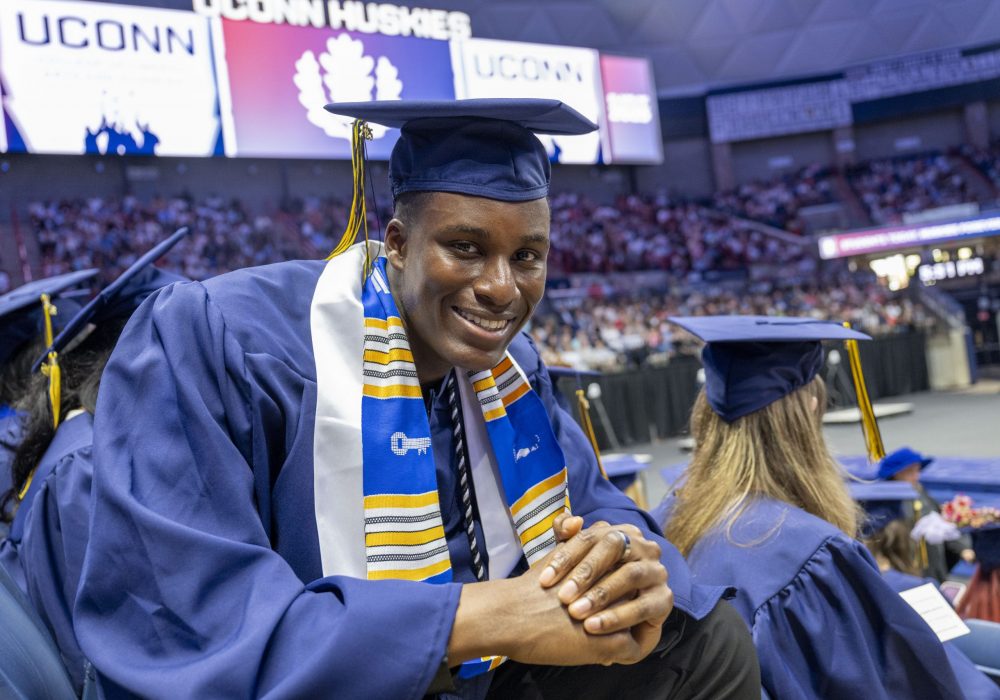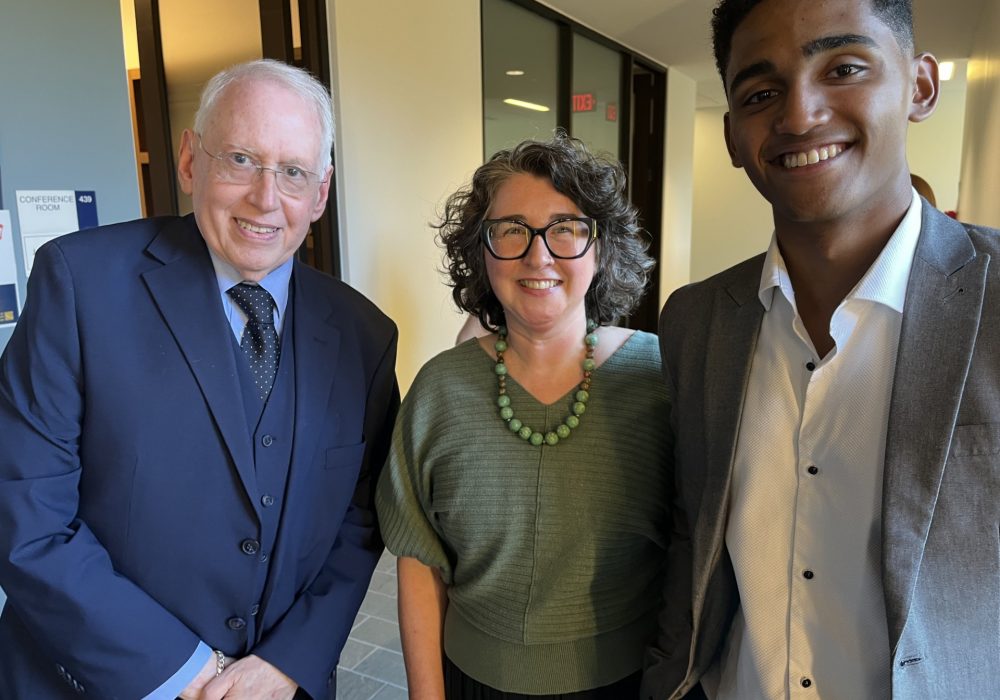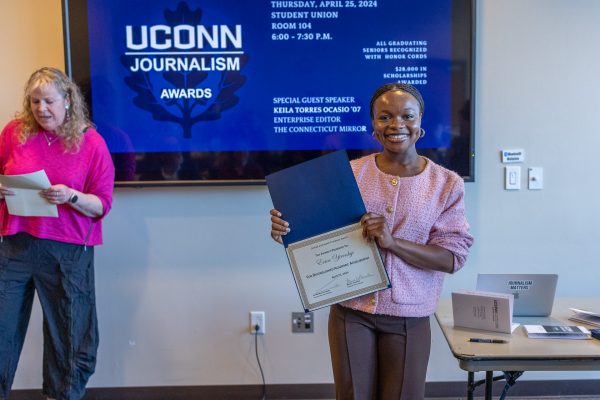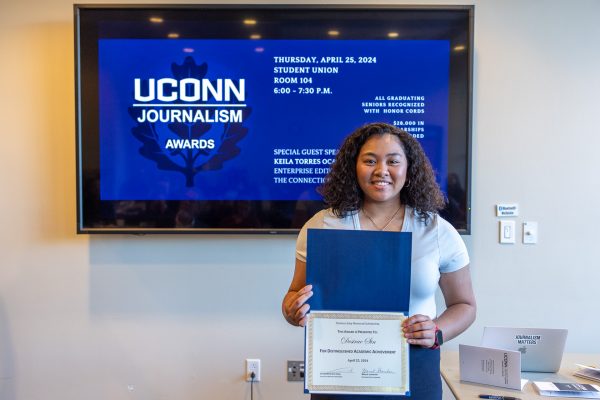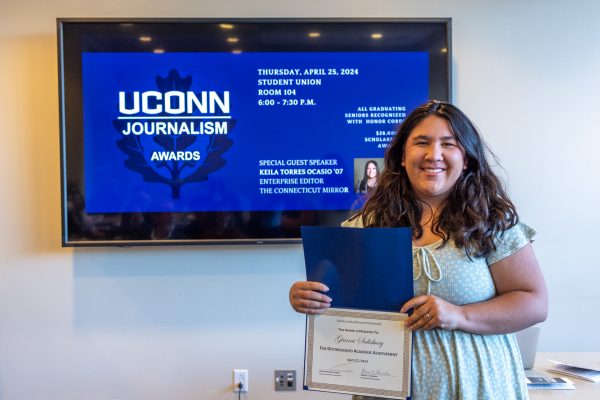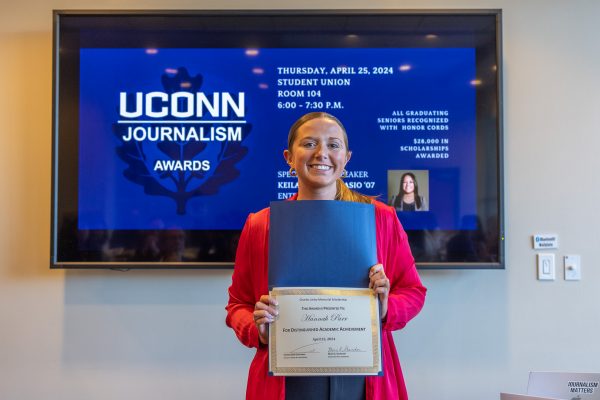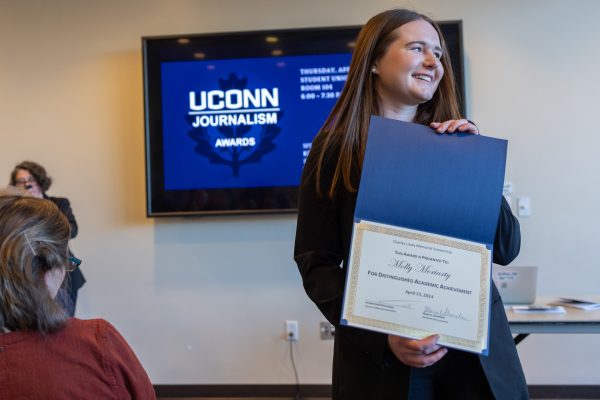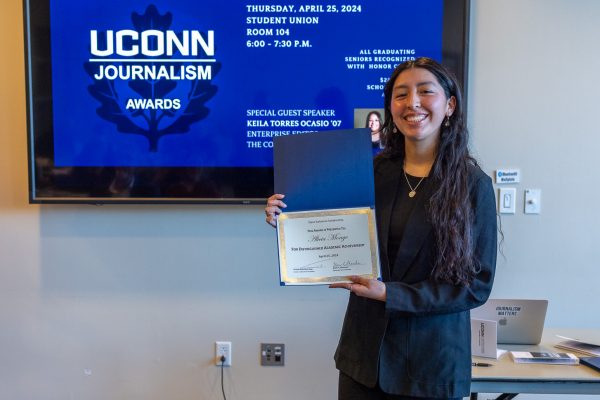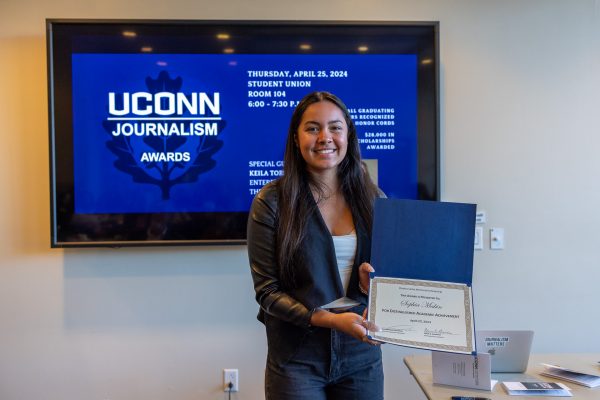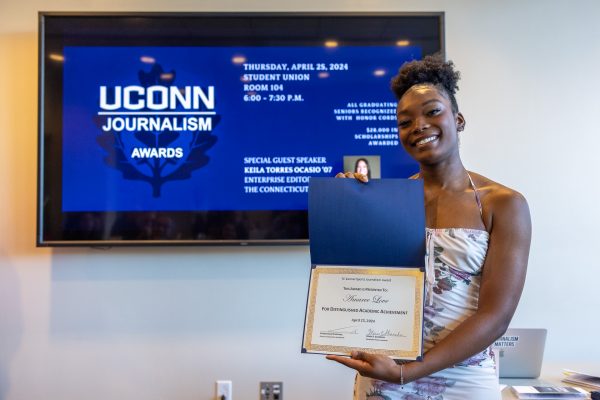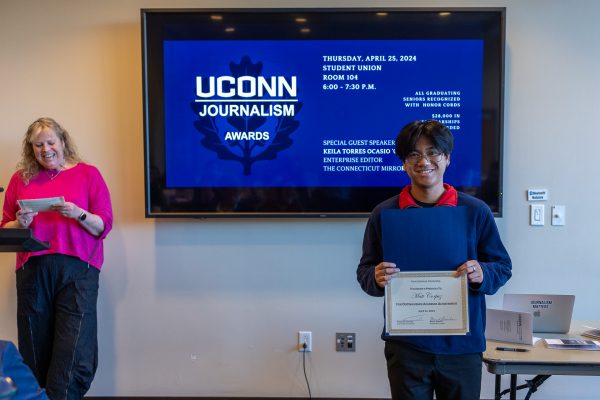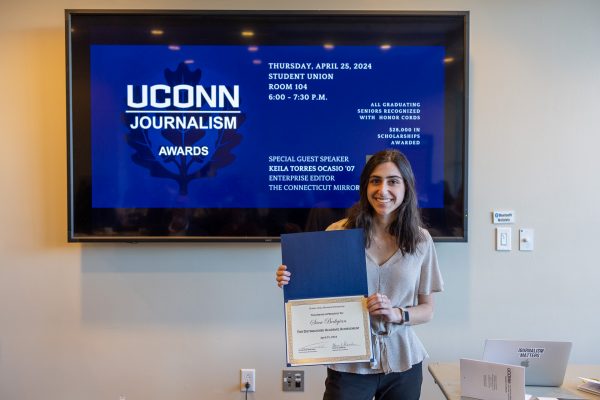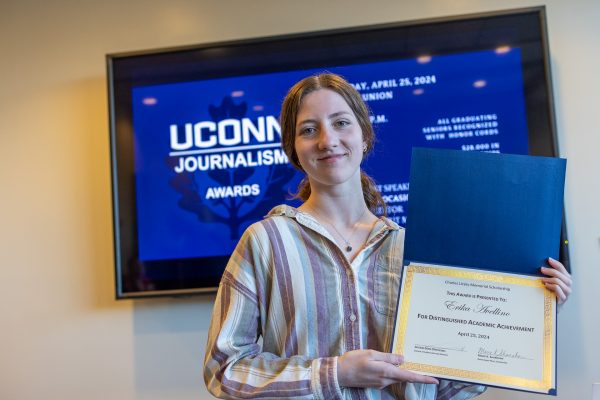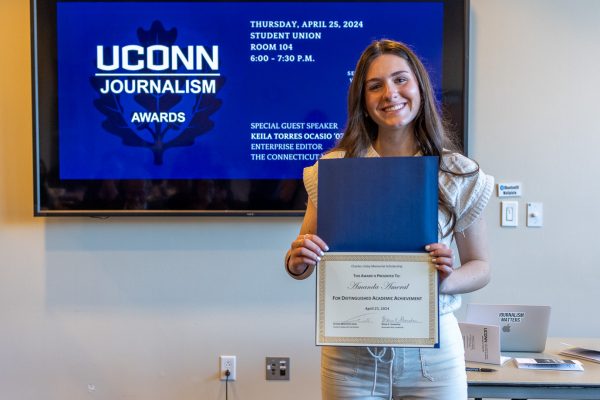Brad Tuttle, an assistant professor in the UConn Journalism Department, gave a fascinating presentation in Storrs about how he incorporated the use of Artificial Intelligence in his Journalism Ethics course this semester.
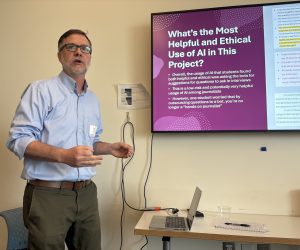
Working in groups on reporting and writing a news story, his students used AI to brainstorm ideas, find sources to interview, write one version of a story, compare it to a version they wrote and to then edit their work. They also had to evaluate which uses were ethical or not. Their conclusion was that it was most useful and ethical to use AI to correct their grammar and spelling and to prepare questions before an interview, but not to ”put words in their mouths."
Brad was presenting as part of mAI dAI, a daylong workshop organized by UConn’s Center for Excellence in Teaching and Learning.
